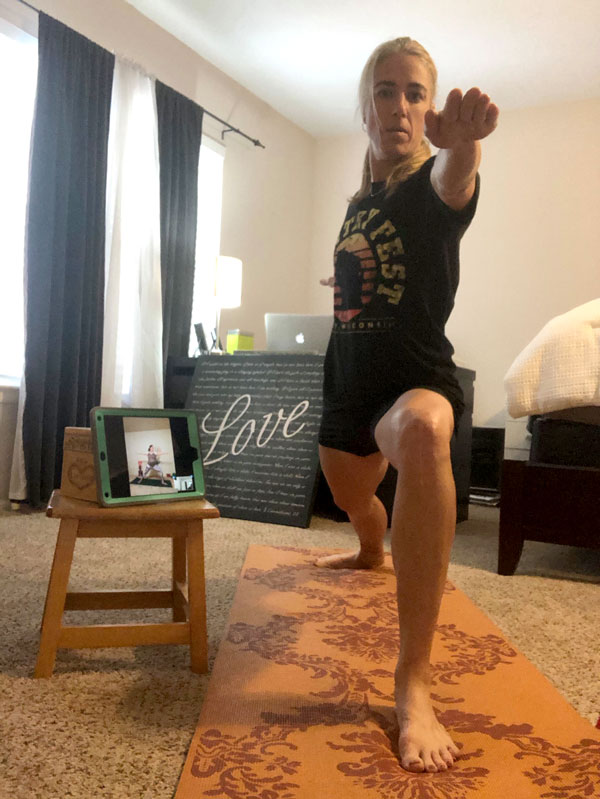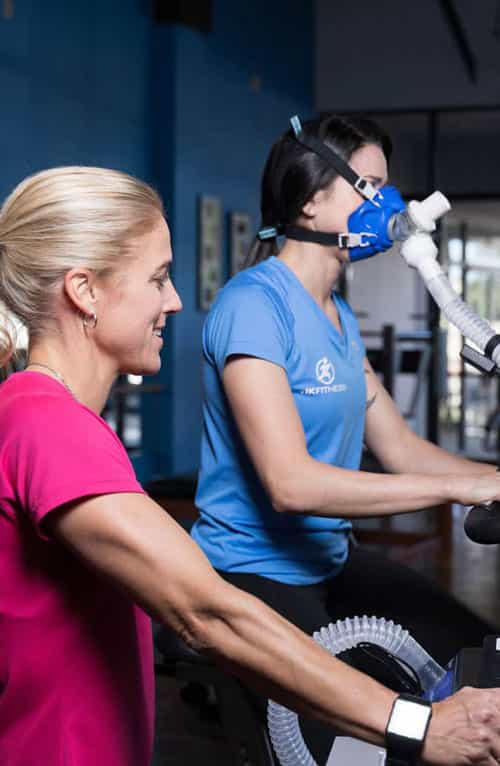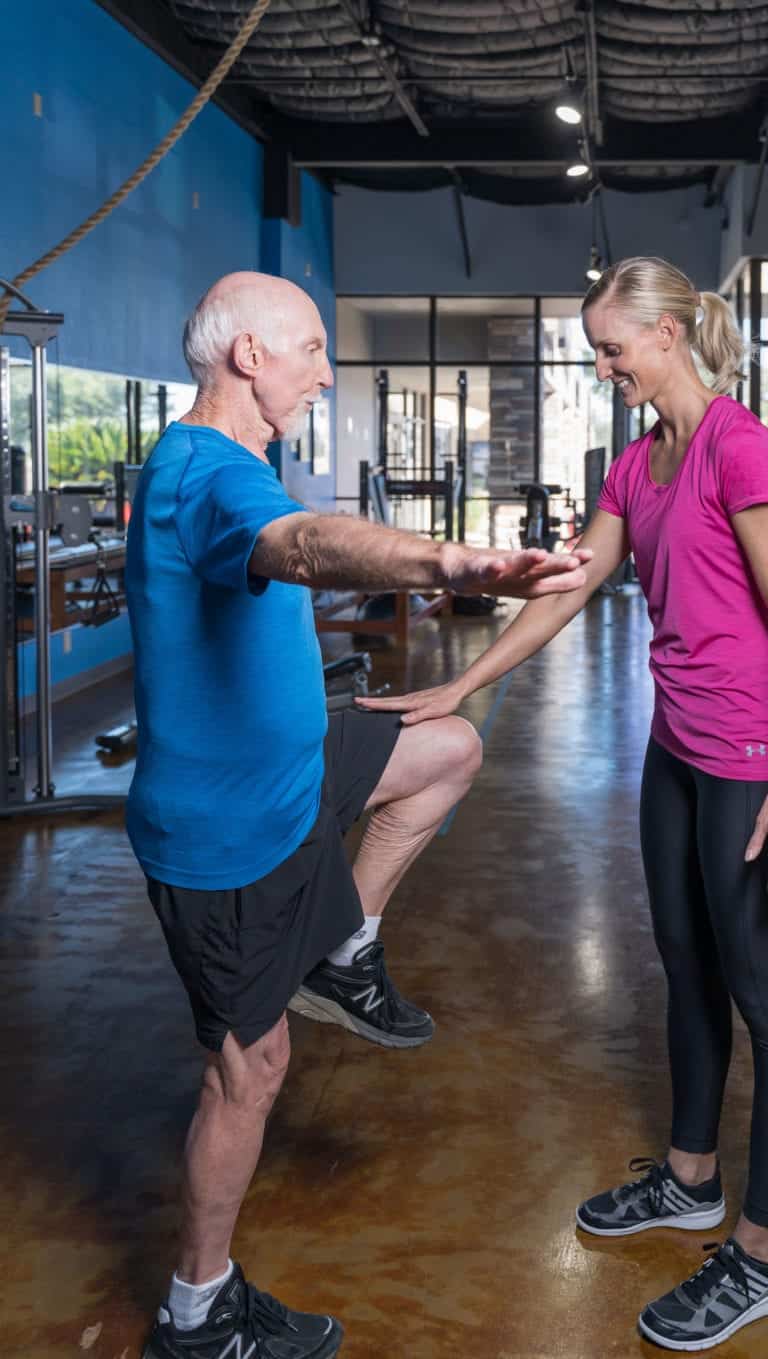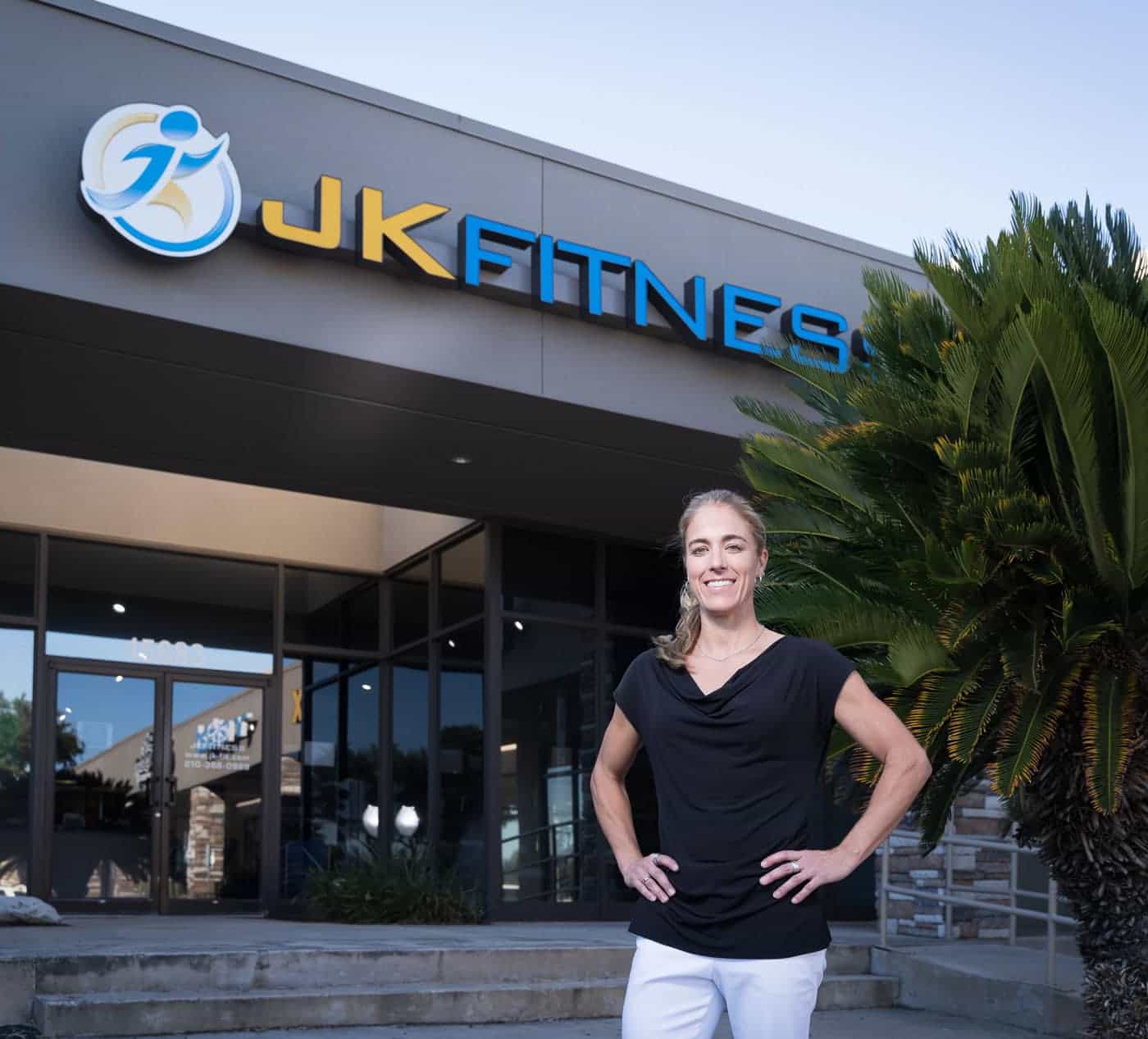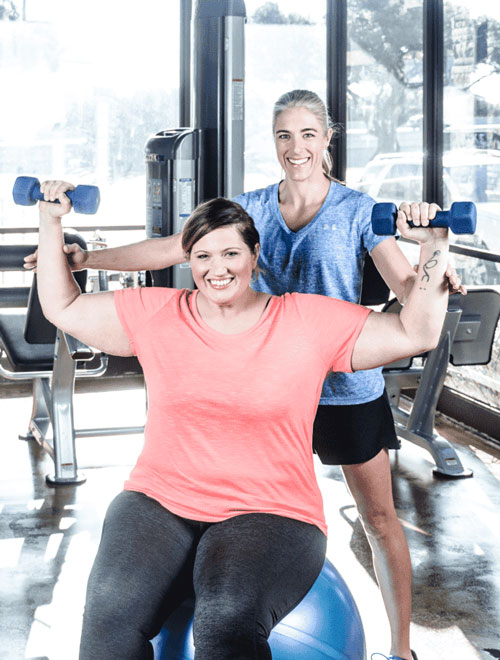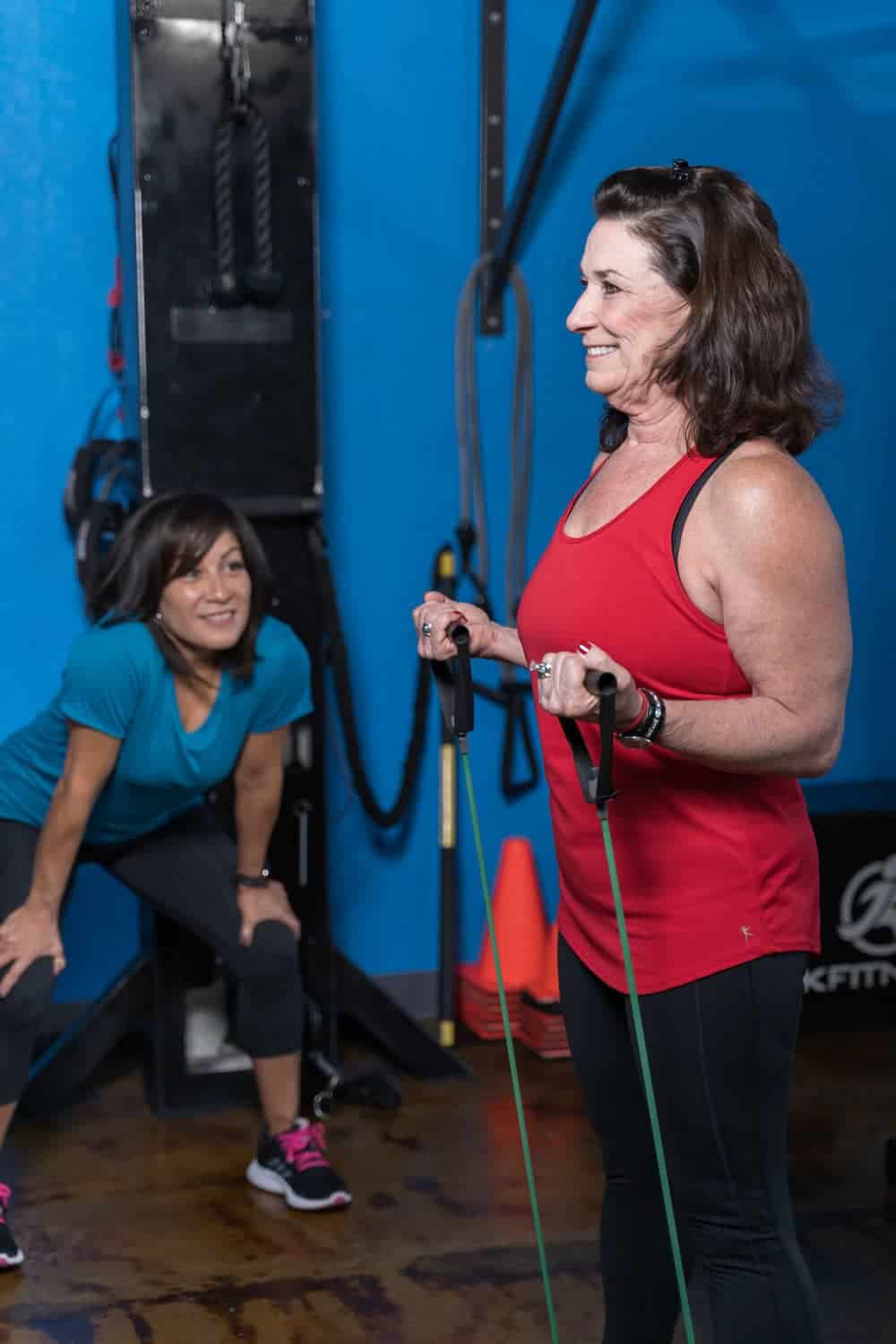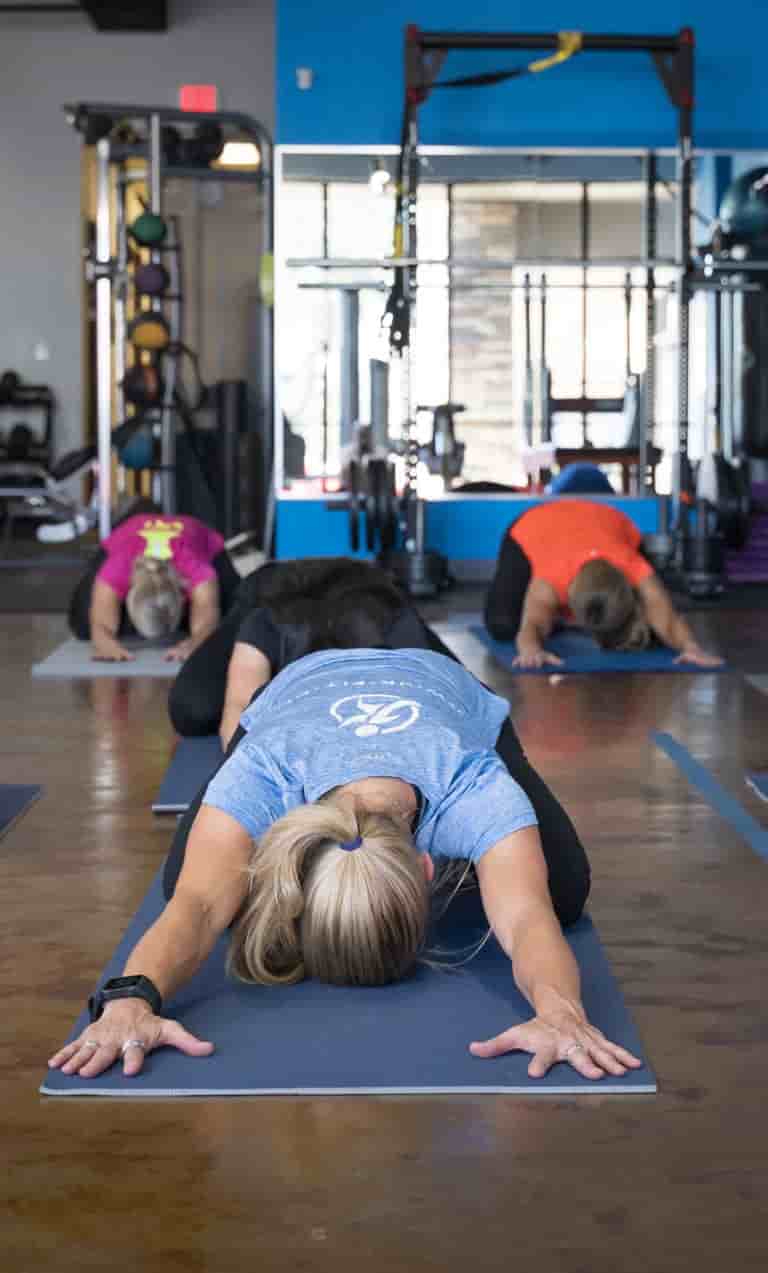Experts in Fitness & Weight Loss
Are you trying to lose weight medically or surgically? Have you thought about undergoing weight loss surgery or have you already had a weight loss surgery procedure? Do you fully understand why exercise is critical to long-term success of your weight loss journey? Do you know how to exercise pre- and post- operatively in order to maximize your weight loss? With bariatric surgery, there are many components that will aid in achieving the weight loss you desire. Our health and fitness professionals understand what types of exercises along with the frequency, intensity, and duration to compliment your weight loss surgery and promote long-term weight loss. Our personal trainers are educated, experienced, empathetic, and passionate for the weight loss surgery patient. We know what it takes to promote healthy weight loss through exercise that is injury free! We have developed long-standing relationships with various bariatric physicians, surgeons, and healthcare providers across the country. Call today and let us guide you.
Annie Elmendorf
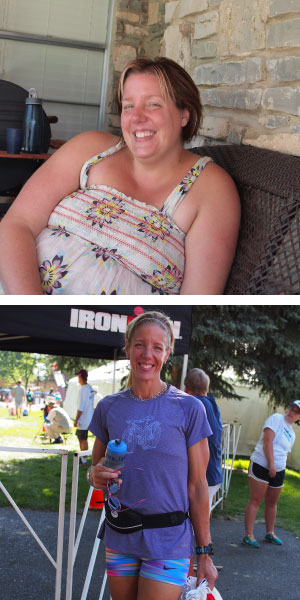
I’ve struggled with my weight my entire life: gaining, losing, and gaining again—plus a little more than before—over and over again for as long as I can remember. In the fall of 2010, I was 35 years old and weighed 275 pounds. My husband and I had a two-year-old son and planned to have another child, but I was still carrying baby weight (and then some). After considering my options, I decided to undergo gastric bypass surgery in December 2010. My surgeon’s group offered monthly support meetings for weight loss surgery patients. At one such meeting, I met Gilbert Hernandez from JKFITNESS, who came to speak about the importance of exercise after weight loss surgery. His message resonated with me. I decided to get more serious about fitness, and I made a standing appointment to train with Gilbert twice weekly starting a couple of months after my surgery. The first weeks were painful, but I was committed. Before long, I was actually enjoying exercise and feeling stronger. JKFITNESS was putting together a team to train for a two-day charity bike ride. I started going on their training rides and also riding with Gilbert on the weekends. When we had our cycling team fundraiser in late summer 2011, I was just a few pounds shy of my goal weight of 160 pounds. To my surprise, Julia and Gilbert presented me with the “Rock Solid Club” award to recognize all of the hard work and positive changes that I had made in the six months I had been working with them. It was awesome! Shortly thereafter, something funny happened. Through a lot of hard work, my body had transformed and so had my mind. I stopped thinking of myself as the fat girl and started seeing myself as the athlete I had become. On a family vacation where I didn’t have access to my bike or a regular gym, I discovered that I was fit enough to run a few miles. Shockingly, I found this run to be fun. I moved on to do a duathlon and half marathon. After the birth of my daughter in February 2013, I discovered my passion for triathlons and dabbled in several sprint- and Olympic-distance races before completing two half-Ironman-distance races in 2014. On June 28, 2015, I completed my full Ironman in Coeur D’Alene, Idaho. At seven years post-op, I would say the surgical food “limitations” that the bariatric surgery placed on my body in order to achieve significant weight loss are minimal. In fact, as a result of my exercise, I’m able to eat extra calories and stick to a more normal diet. Today, I’m a lean, muscular, 145-pound, 42-year-old woman. I’m a wife, mother of two, competitive cyclist, and Ironman finisher. Exercising and discovering my inner athlete have been the absolute keys to my success in maintaining a healthy weight and lifestyle after weight loss surgery.
Carol Waryas
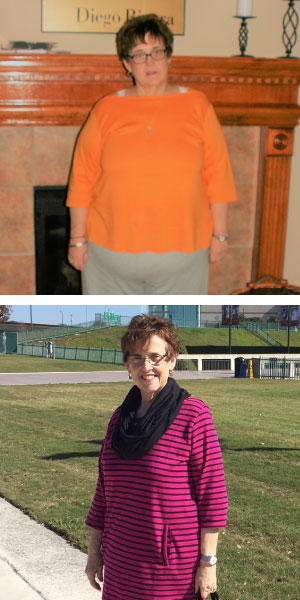
In September of 2009, I walked into a gym totally convinced that it would do no good. I was a 63-year-old woman, and I had just recovered from a Roux-en-Y gastric bariatric surgery. The only reason I was there was because I had been told that unless I exercised, I would be unsuccessful at continuing to lose the weight I needed to, and more than that, keeping it off. I honestly had absolutely no hope of succeeding with exercise.
However, working with Julia Karlstad, owner and head trainer of JKFITNESS, has been the best thing I have ever done for my mind and body. She has patiently led me from dreading exercise to looking forward to it. Exercise is now the first thing that I prioritize, rather than the last thing I’d ever think about doing. Since working with Julia, I have grown in physical strength, balance, and flexibility and I have overcome numerous obstacles to my health and well-being. I have achieved my initial goals of continuing to lose and keep the weight off. I have progressed from “morbidly obese” when I first starting working with Julia to “obese” and now to just “overweight.” Julia has helped me lose and keep off over 110 pounds. Now, at age 71, I’m healthier and more physically fit than I’ve been in years. I’m down 165 pounds from my pre-surgery weight, and I recently walked more than 25 miles over four days on a family trip. One of the proudest accomplishments of my life was when Julia surprised me by inducting me into her “Rock Solid Club” for my “efforts to accomplish fitness goals and improve my overall health.” The reality is that I couldn’t have done any of this without Julia and her belief in me, and her commitment to not let me fail. She is truly what every trainer should be but few are—a knowledgeable, trained fitness and health expert who can see beyond someone’s current physical state and help them be what they should become. Her knowledge, patience, caring, guidance, and support are unsurpassed.
Elizabeth Storie
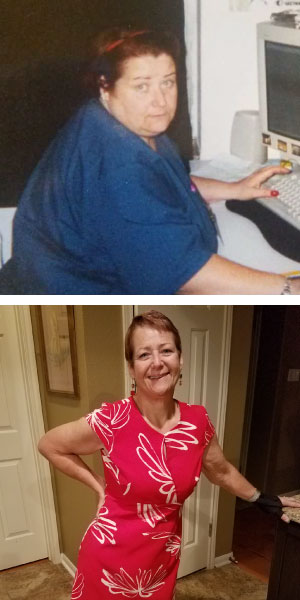
My weight has been up and down during my entire adult life. In fact, while in the US Army, I was unable to maintain my weight within the military standards, which ultimately forced me to leave at the age of 31 after serving eight years. I was always on a diet, but never exercised. I was a single mom, concentrating on my son’s life, and gave little thought to taking care of my health and happiness. I became a nurse in 1993 and my weight spiraled out of control. In 2006 I met my husband, Ronnie, who loved me for who I was. I weighed about 180 pounds at the time, which made my BMI 35. I continued to lose and regain weight; I was 262 pounds by 2011 when my primary care doctor told me I was borderline diabetic. As a registered nurse, I cared for many patients suffering devastating effects of uncontrolled obesity, yet was in denial over the negative impact my weight was having on my own life. The news that I may become diabetic was the wake-up call I needed. It was not until 2011 that I became serious about my excess weight, and in August 2013 I had Roux-en-Y gastric bypass surgery with Dr. Pilcher in San Antonio, Texas.
I have never once regretted the decision to have surgery. I started this journey at 260 pounds, standing 61 inches (5’1”)! I lost a total of 140 pounds and regained a few to reach my current set point of 135 pounds. I was a size 24-plus and am now a size 6 to 8 petite. It took me about one year to lose the weight. I had no serious medical problems post-surgery. The combination of exercise and nutrition were key to my success; but exercise was and continues to be my saving grace regarding weight loss, weight maintenance, and mental stability. I want to give a big thanks to Amanda Albiar, from JKFITNESS, for physically training and motivating me to do more each week. To date, I have completed three 5Ks, a Dirty Girl 5K obstacle race, and can Zumba with the best of them—amazing for a 59-year-old with two prosthetic knees! Today I am happy, healthy, and active thanks to my doctor, my dietician, my trainer, my bariatric support group members, my husband, and myself. I love life more than ever and continue to strive to improve in all areas of life. If you are contemplating bariatric surgery or are dealing with chronic obesity, I will tell you to start slow but keep moving. If you are interested in becoming more active, make sure you are evaluated by an educated and experienced personal trainer who can adapt exercise to your fitness level and limitations.
Mark Noblitt
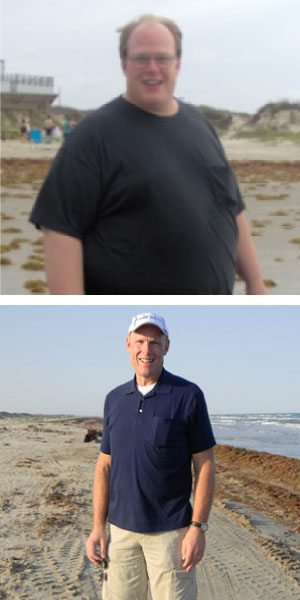
I started my journey to better health in August 2008. Tipping the scales at a whopping 500 pounds and smoking two packs of cigarettes a day, I was miserable and had been for years without even realizing it. My weight gain had happened so gradually over decades that it was out of hand before I recognized how big the problem had become. I remember even joking sarcastically about being on the “see food” diet, or about smoking, “No one likes a quitter.” I lashed out at healthy eating advocates by suggesting their tips only made me want ice cream.
At age 48, I began to understand the ways in which my weight and smoking were limiting my life. Flying on airplanes was true misery (and for those poor people sitting next to me). I hated going outside nine months out of the year in South Texas because I found the heat and humidity overwhelming. Buying clothes was terrible because I was limited to the very few items in my size (60-inch waist and 5 or 6XL shirt). The time had come to find my way back to reasonably good health. After considerable research, I decided to begin my journey with gastric bypass surgery. I had tried all kinds of “diets” in the past but had just managed to yo-yo my weight. Amazingly, I’ve had triple-digit weight loss three times in my life! As I’ve traveled my path over nearly a decade, there are some things I have learned along the way. In sharing these observations, I hope I can help others benefit from my experience.
- Find a bariatrician in your area. They specialize in obese patients and should be able to offer a variety of surgical and nonsurgical options to get your weight loss going. Beware of docs who just advocate one procedure rather than offering you options.
- Set reasonable goals for yourself. Don’t get overly ambitious and try to do everything all at once. For example, I was a two-pack-a-day smoker and knew I needed to knock that out before I could reasonably think about getting fit to lose weight.
- Elicit the support of your family and friends. Tell absolutely everyone around you what you’re doing and why. Ask them to help you in very specific ways.
- Plan your meals. Don’t be tempted to skip meals, especially breakfast! Even if you’re not a good planner, find strategies
- to get over this excuse for not planning your eating. Plan what you’re going to eat each day and keep a food journal.
- Get going! Do it today—not tomorrow, not on January 1, not on Monday—today! Don’t fall into the mental trap of Top: Mark at 500 pounds. waiting for some milestone or until you have the perfect Bottom: Mark at 225 pounds. plan in place. Set one goal and accomplish it while you’re working out the other details. Put one foot in front of the other—get on the path and start your own journey!
Natalie Nelson
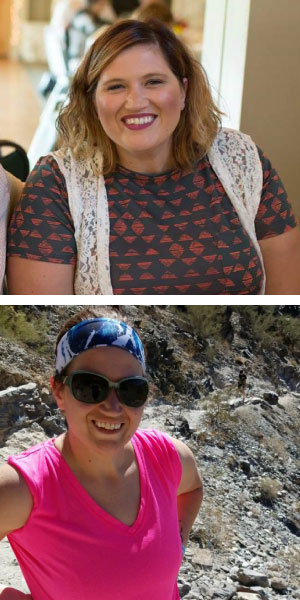
Natalie is the cover model and fitness model throughout this book. She had the gastric sleeve procedure on August 24, 2017, and went through the largest portion of her weight-loss transformation during the authorship of this book.
Natalie struggled with her weight ever since she was a child, claiming she was always chubbier than the other kids, but at 13 years old her weight really started to come on after her dad unexpectedly passed away. Natalie grew up on a farm, so activity was naturally a part of her life, but once her dad died, she stopped helping around the house or doing anything really physical. She was depressed and began to isolate herself and use food as a coping mechanism. This emotional battle over food and inactivity went on for years, and Natalie understands that bad eating habits and minimal or inconsistent exercise are what contributed to her weight gain. Like most weight-loss surgery patients, Natalie was not new to weight-loss programs. She had tried to lose weight on several occasions, but the most she ever lost was through a medical weight-loss program her mom helped enroll her in at the Mayo Clinic when she was in high school. Natalie lost 40 pounds with this program, but the weight loss was temporary. She also didn’t couple this program with a consistent exercise program. In fact, she never really committed to a regimented exercise plan until she started working out at JKFITNESS in 2016. For years Natalie claimed she would have never considered weight-loss surgery, but in early 2017 she started to change her view. What pushed her into considering the surgery was that work was really difficult. As a registered nurse, being on her feet and shifting and moving patients all day long, she was experiencing significant pain throughout her body. “Everything hurt,” as Natalie put it. She had tendonitis in her Top: Natalie before. hips, plantar fasciitis in her feet, and pinched nerves in her Bottom: Natalie after. spine that were causing severe havoc on her back. At 302 pounds, her physical health was really affecting her emotional health. Another thing that really hurt, but at the same time drove her to get serious about weight loss, was when she was home playing with her five-year-old nephew and he said, “Natalie, you’re fat.” She wanted to be a positive role model for him. It was time to change.
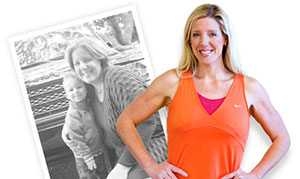 “I underwent a gastric bypass in December 2010 and knew that an exercise regimen would be crucial to my long-term success. I was able to start a cardio routine within a couple weeks of the surgery and knew that I needed to start strength training as well, but didn’t really know where to begin. Just a few weeks later, a trainer from JKFITNESS came to my surgical support group meeting to talk about the importance of strength training after weightloss surgery. I was struck not only by his experience and knowledge in realm of exercise science and physiology, but by his experience in the field of bariatrics — knowing that I wouldn’t have to explain all that I had been through meant a lot to me. It’s now been over a year that I have been working out 2-3 times per week at JKFITNESS and the results speak for themselves. I’m in better shape than I ever thought possible and just completed my first duathlon! I owe my success to my own determination and to dedicated trainers at JKFITNESS. The trainers are professional, sensitive, knowledgable and always keep things interesting. I also highly recommend the metabolic testing! It takes the guess work out of how many calories you should actually be consuming and how hard you should be working out, instead of relying on a chart that may not apply to you.”
“I underwent a gastric bypass in December 2010 and knew that an exercise regimen would be crucial to my long-term success. I was able to start a cardio routine within a couple weeks of the surgery and knew that I needed to start strength training as well, but didn’t really know where to begin. Just a few weeks later, a trainer from JKFITNESS came to my surgical support group meeting to talk about the importance of strength training after weightloss surgery. I was struck not only by his experience and knowledge in realm of exercise science and physiology, but by his experience in the field of bariatrics — knowing that I wouldn’t have to explain all that I had been through meant a lot to me. It’s now been over a year that I have been working out 2-3 times per week at JKFITNESS and the results speak for themselves. I’m in better shape than I ever thought possible and just completed my first duathlon! I owe my success to my own determination and to dedicated trainers at JKFITNESS. The trainers are professional, sensitive, knowledgable and always keep things interesting. I also highly recommend the metabolic testing! It takes the guess work out of how many calories you should actually be consuming and how hard you should be working out, instead of relying on a chart that may not apply to you.”
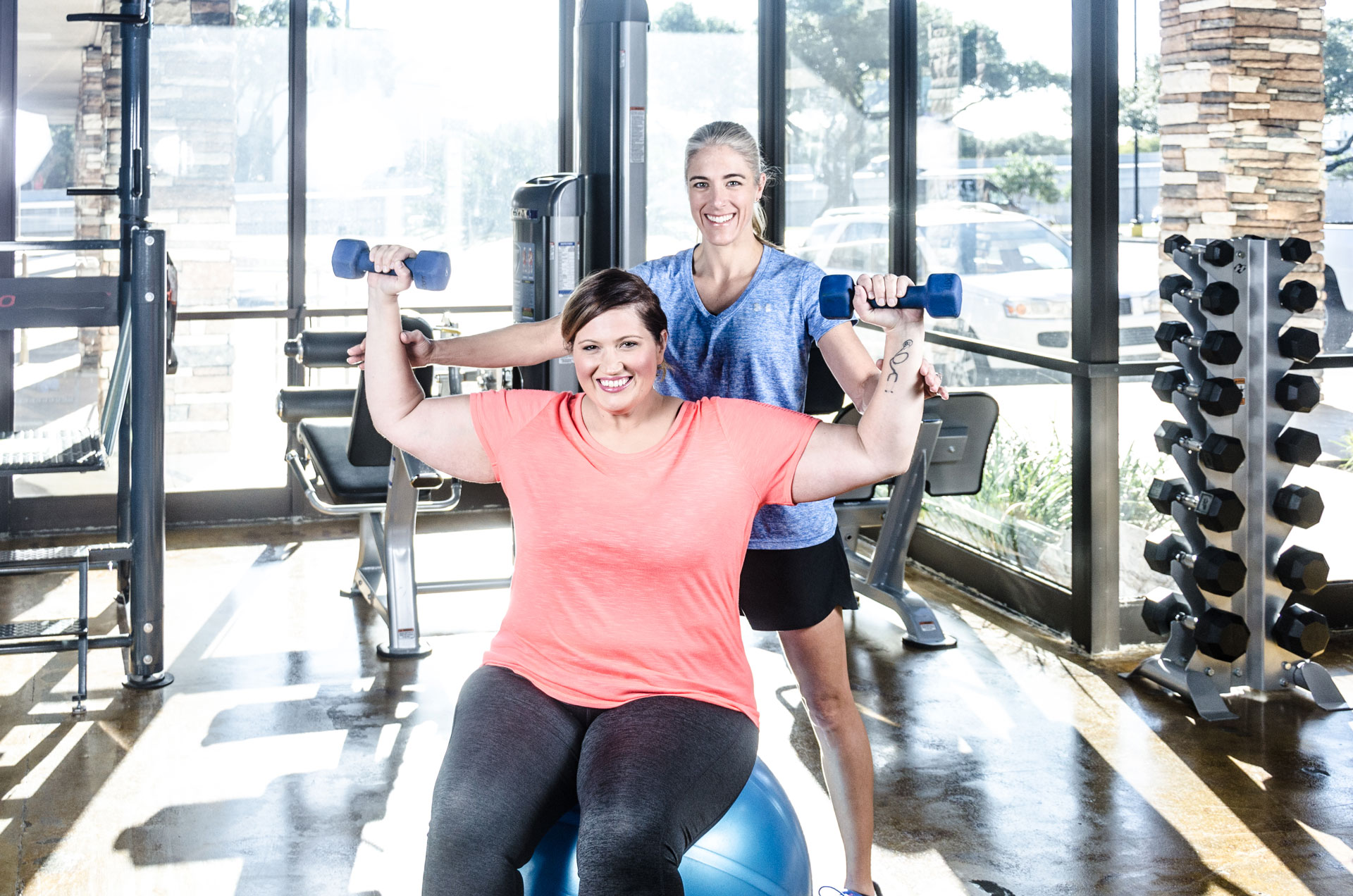

 In September of 2009, I walked into a gym totally convinced that it would do no good. I was a 63-year-old woman, and I had just recovered from a Roux-en-Y gastric bariatric surgery. The only reason I was there was because I had been told that unless I exercised, I would be unsuccessful at continuing to lose the weight I needed to, and more than that, keeping it off. I honestly had absolutely no hope of succeeding with exercise.
In September of 2009, I walked into a gym totally convinced that it would do no good. I was a 63-year-old woman, and I had just recovered from a Roux-en-Y gastric bariatric surgery. The only reason I was there was because I had been told that unless I exercised, I would be unsuccessful at continuing to lose the weight I needed to, and more than that, keeping it off. I honestly had absolutely no hope of succeeding with exercise. My weight has been up and down during my entire adult life. In fact, while in the US Army, I was unable to maintain my weight within the military standards, which ultimately forced me to leave at the age of 31 after serving eight years. I was always on a diet, but never exercised. I was a single mom, concentrating on my son’s life, and gave little thought to taking care of my health and happiness. I became a nurse in 1993 and my weight spiraled out of control. In 2006 I met my husband, Ronnie, who loved me for who I was. I weighed about 180 pounds at the time, which made my BMI 35. I continued to lose and regain weight; I was 262 pounds by 2011 when my primary care doctor told me I was borderline diabetic. As a registered nurse, I cared for many patients suffering devastating effects of uncontrolled obesity, yet was in denial over the negative impact my weight was having on my own life. The news that I may become diabetic was the wake-up call I needed. It was not until 2011 that I became serious about my excess weight, and in August 2013 I had Roux-en-Y gastric bypass surgery with Dr. Pilcher in San Antonio, Texas.
My weight has been up and down during my entire adult life. In fact, while in the US Army, I was unable to maintain my weight within the military standards, which ultimately forced me to leave at the age of 31 after serving eight years. I was always on a diet, but never exercised. I was a single mom, concentrating on my son’s life, and gave little thought to taking care of my health and happiness. I became a nurse in 1993 and my weight spiraled out of control. In 2006 I met my husband, Ronnie, who loved me for who I was. I weighed about 180 pounds at the time, which made my BMI 35. I continued to lose and regain weight; I was 262 pounds by 2011 when my primary care doctor told me I was borderline diabetic. As a registered nurse, I cared for many patients suffering devastating effects of uncontrolled obesity, yet was in denial over the negative impact my weight was having on my own life. The news that I may become diabetic was the wake-up call I needed. It was not until 2011 that I became serious about my excess weight, and in August 2013 I had Roux-en-Y gastric bypass surgery with Dr. Pilcher in San Antonio, Texas.  I started my journey to better health in August 2008. Tipping the scales at a whopping 500 pounds and smoking two packs of cigarettes a day, I was miserable and had been for years without even realizing it. My weight gain had happened so gradually over decades that it was out of hand before I recognized how big the problem had become. I remember even joking sarcastically about being on the “see food” diet, or about smoking, “No one likes a quitter.” I lashed out at healthy eating advocates by suggesting their tips only made me want ice cream.
I started my journey to better health in August 2008. Tipping the scales at a whopping 500 pounds and smoking two packs of cigarettes a day, I was miserable and had been for years without even realizing it. My weight gain had happened so gradually over decades that it was out of hand before I recognized how big the problem had become. I remember even joking sarcastically about being on the “see food” diet, or about smoking, “No one likes a quitter.” I lashed out at healthy eating advocates by suggesting their tips only made me want ice cream.  Natalie is the cover model and fitness model throughout this book. She had the gastric sleeve procedure on August 24, 2017, and went through the largest portion of her weight-loss transformation during the authorship of this book.
Natalie is the cover model and fitness model throughout this book. She had the gastric sleeve procedure on August 24, 2017, and went through the largest portion of her weight-loss transformation during the authorship of this book. 